10 Common Landlord Mistakes to Avoid to Maximise Your Rental Property's Success
2023-08-22

Embarking on the journey of becoming a landlord can be a lucrative and rewarding venture, but it's not without its challenges. To ensure a smooth and successful rental experience, it's crucial to navigate the responsibilities and complexities of property management with care. Avoiding common landlord mistakes is essential for not only safeguarding your investment but also maintaining positive relationships with tenants. By understanding and sidestepping these pitfalls, you can set the stage for a prosperous and harmonious rental journey.
1. Don't Price Yourself out of the Market
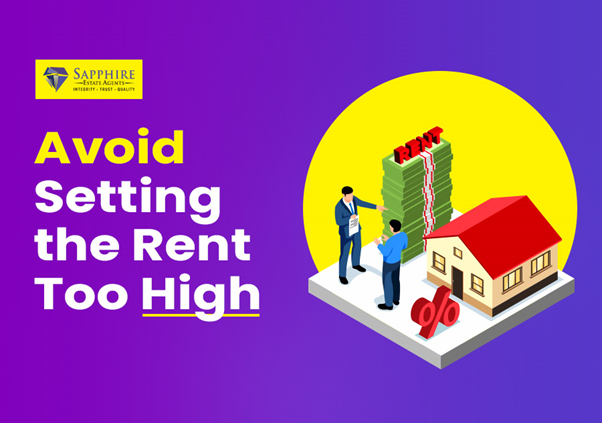
When it comes to renting out your property, avoid the trap of setting the rent too high. It is one of the rookie landlord mistakes. Sure, you want to make the most out of your investment, but if you jack up the price way beyond what others are charging, you're setting yourself up for trouble. Think about it like this: you wouldn't pay top dollar for something if you can get the same thing for a better deal, right? Well, potential tenants think the same way.
If you keep holding out for that extra cash, you might end up with your property sitting empty for way longer than you'd like. And every day your place is vacant is a day you're not making money. So, sure, you might be asking for a bit more rent each week, but when you do the math on all those weeks without a tenant, it often doesn't add up.
Instead, do your homework. Check out what other landlords are charging for similar places in your area. Be realistic about your property's value and set a reasonable rent that attracts tenants without scaring them off. It's all about finding that sweet spot between making a decent income and getting tenants in the door fast. So, skip the temptation to squeeze out a few extra bucks – in the long run, it's often better to keep things competitive and keep your rental journey on track.
Check out New Rentals available through Sapphire!
2. Invest in Quality Photography

In the world of renting properties, the saying "a picture is worth a thousand words" couldn't be more accurate. When it comes to presenting your property to potential tenants, the quality of the photographs you use can make or break their interest. Unappealing photography of your property is among landlord mistakes you should avoid. Think of it as the virtual curb appeal – the initial glimpse that could either captivate or deter a potential renter.
Investing in high-quality photography is like giving your property a chance to shine amidst the sea of online listings. In other words, in a digital landscape where countless options vie for attention, clear and well-composed images can make your property pop. While it might seem like a bit of an expense, consider it an investment in getting your property noticed and rented faster.
Professional photographers understand how to capture your property's best angles, lighting, and features. They can make even modest spaces look appealing, highlighting the selling points that might not be immediately obvious. It's like presenting your property in its best light, quite literally.
Check out Sapphire’s Magazine for Photography Options!
Similarly, when potential tenants browse through online listings, they're scanning through images first. These images serve as their first introduction to your property, shaping their initial impressions. If your photographs are lackluster, blurry, or poorly lit, you might miss out on attracting those tenants who could be the perfect fit for your place.
In a nutshell, spending a bit on quality photography is a smart move. It's an investment that can yield returns by drawing in more inquiries and reducing the time your property spends on the market. So, if you want your property to make a positive and memorable first impression, don't skimp on the pictures – they're your property's virtual handshake with potential tenants.
3. Prioritize Property Maintenance
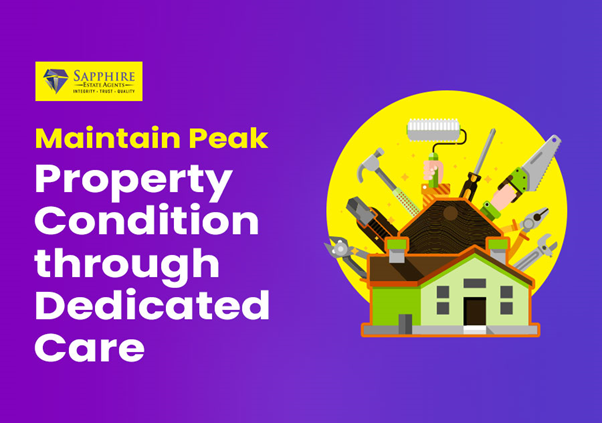
When it comes to renting out your property, keeping it in tip-top shape is more than just a suggestion – it's a must. Not maintaining your property is another one of the landlord mistakes you should steer clear of. Those seemingly minor things like chipped paint, creaky doors, or outdated appliances might appear insignificant, but they can pack a powerful punch when it comes to tenant perception. Picture it this way: tenants are on the hunt for a cozy and convenient living space, not a DIY renovation project.
Thus, prioritizing property maintenance is like giving your property a solid foundation for attracting and retaining tenants. Those little flaws that might not bother you could send a completely different message to potential renters. If they spot peeling paint, leaky faucets, or a host of other small issues, they might start wondering what other problems could be lurking beneath the surface.
Remember, tenants are making a significant decision when choosing a place to live. They're looking for a place that they can call home – a space that's comfortable, functional, and hassle-free. By addressing maintenance concerns, you're not just fixing problems; you're creating a positive living environment that tenants will genuinely appreciate.
Think of it as a win-win scenario. When you keep your property well-maintained, you're not just fulfilling your responsibilities as a landlord – you're also fostering a better relationship with your tenants. You're showing them that you care about their well-being and comfort, and that can go a long way in building trust and goodwill.
So, take the time to regularly inspect your property for any maintenance needs. If you spot something that needs fixing, don't put it off. Prompt attention to these matters can save you from larger repair bills down the line and keep your property looking its best. Ultimately, by prioritizing property maintenance, you're setting the stage for a rental experience that tenants will love and appreciate.
4. Consider Professional Property Management
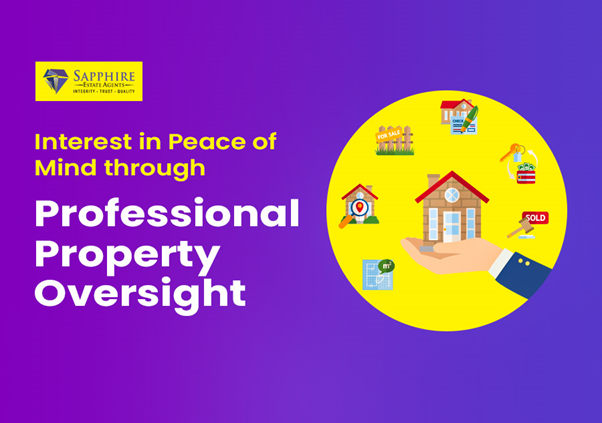
The decision to manage your rental property yourself versus hiring a professional property management service can be a pivotal choice with lasting implications. Not going with a property manager can add in to landlord mistakes. While the allure of saving on management fees might be tempting, the road of DIY management can be riddled with unforeseen challenges that can eventually lead to more headaches than you bargained for.
Professional property management is akin to having a seasoned guide by your side through the intricate terrain of landlord responsibilities. The experts, such as Sapphire’s team, possess a wealth of knowledge not only about property management but also about the intricate legal nuances and potential pitfalls of the rental landscape. Rental laws and regulations can be complex and vary by jurisdiction, and overlooking even a small detail can land you in a quagmire of legal troubles.
Think of it as an investment in peace of mind. Property managers have a keen understanding of tenant dynamics and common issues that arise in rental properties. From screening tenants to handling maintenance requests and addressing disputes, they have honed their skills to create a harmonious landlord-tenant relationship.
While the upfront cost of a property management service might seem like an expense, it can actually translate into significant savings in the long run. These professionals can help minimize vacancies by promptly finding and vetting tenants, ensuring that your property generates consistent rental income. They also have established networks of contractors and service providers, often securing more cost-effective maintenance solutions compared to individual repairs.
In the end, the choice between self-management and professional property management depends on various factors, including your time availability, expertise, and comfort level with handling tenant interactions and legal intricacies. If you're seeking convenience, time savings, and a well-structured approach to property management, enlisting the expertise of professionals can be a prudent decision that pays dividends by mitigating risks, streamlining operations, and ultimately contributing to a successful and hassle-free rental journey.
5. Maintain Communication Boundaries

Maintaining clear and defined communication boundaries between landlords and tenants is a strategic move that can significantly contribute to the smooth sailing of your rental venture. While the idea of direct communication might seem like a friendly gesture, it can sometimes create more problems than it solves. This is another of the landlord mistakes to be weary of.
Hence, this is where the role of a property manager steps in, serving as a crucial buffer that facilitates effective communication and cultivates a healthier landlord-tenant dynamic.
Consider property managers as the bridge between your property and your tenants. They're equipped with the experience to professionally navigate tenant concerns and requests. This intermediary role not only relieves you from the stress of handling various tenant issues directly but also offers tenants a structured and consistent channel for addressing their needs.
Simply out, direct communication with tenants can inadvertently lead to misunderstandings, misinterpretations, or even emotional frictions. Property managers, on the other hand, are trained to address tenant inquiries and concerns in a neutral and objective manner. This helps maintain a level of professionalism and ensures that the lines of communication are clear and productive.
By implementing this approach, you're not only saving yourself from unnecessary stress but also fostering a relationship built on respect and clarity. Tenants appreciate a well-organized system where their queries are addressed promptly and professionally. This, in turn, enhances their overall satisfaction with their rental experience and can positively impact lease renewals and referrals.
In a nutshell, property managers are more than just middlemen – they're the lubricant that keeps the wheels of your rental property turning smoothly. They ensure that communication remains effective, tenants are heard, and you're shielded from the potential emotional complexities that can arise from direct interactions. Ultimately, by maintaining these communication boundaries, you're creating an environment that promotes understanding, collaboration, and a harmonious landlord-tenant relationship.
Check out Sapphire’s extraordinary team that can help you make your property investment a success!
6. Meet Essential Tenant Needs
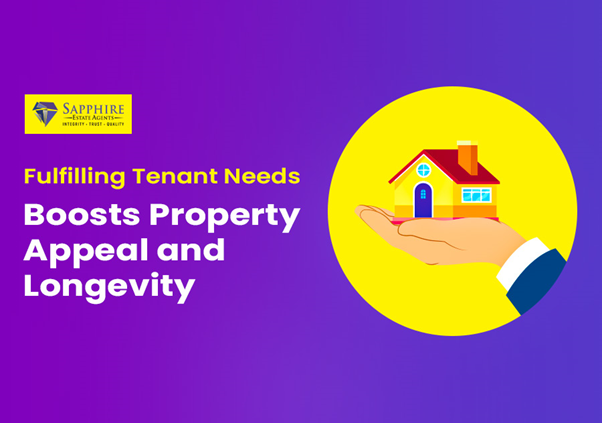
Likewise, in the ever-evolving landscape of rental properties, meeting the essential needs of modern tenants is a strategic approach that can significantly enhance your property's desirability and longevity. Today's tenants are not just looking for a place to stay; they're seeking a lifestyle that aligns with their comfort and convenience. By catering to these evolving needs, you position your property as a sought-after haven that goes beyond four walls.
On the other hand, by ignoring these needs, you are making grave landlord mistakes.
Think of it as crafting an inviting and functional space that tenants can call home. Essentials like wardrobes, dishwashers, and air conditioning are no longer just luxuries; they're expectations. These features contribute to the quality of life that tenants desire and, in many cases, have come to consider standard in modern rentals.
Providing wardrobes addresses a practical concern for tenants who are often looking for ample storage space to accommodate their belongings. In like manner, a well-designed closet system can make a significant difference in their day-to-day living experience.
Dishwashers might seem like a small addition, but they contribute to a significant enhancement of convenience. Tenants appreciate the time and effort saved by not having to handwash dishes, and it can influence their decision to choose your property over others.
Air conditioning has evolved from being a luxury to a necessity, especially in regions with extreme weather conditions. Ensuring that your property offers comfortable temperatures can greatly impact tenant satisfaction and contribute to longer tenancy periods.
By providing these essentials, you're not only attracting a wider pool of potential renters but also encouraging them to stay longer. You are also avoiding falling into the pitfalls of landlord mistakes. When tenants find a property that meets their practical needs and enhances their daily life, they're more likely to view it as a place to settle down, reducing turnover and vacancy rates.
In essence, it's about adapting to the changing landscape of tenant expectations. By embracing these essential features, you're making your property more competitive in the rental market, enhancing its appeal to discerning tenants, and creating an environment that fosters contentment and loyalty. Meeting essential tenant needs isn't just about fulfilling requirements; it's about creating a living experience that resonates with the desires and aspirations of modern renters.
7. Promptly Address Repairs
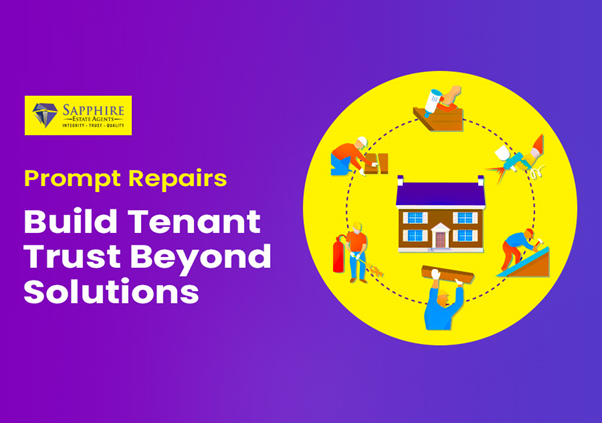
Moving on to another landlord mistakes to avoid is neglecting repairs. In the realm of property management, the importance of promptly addressing repairs cannot be overstated. This practice goes beyond simply fixing broken fixtures; it speaks volumes about your dedication to providing tenants with a comfortable and supportive living environment. Timely repairs are a tangible way to showcase that their well-being matters to you, and that their comfort and satisfaction are top priorities.
Imagine being in your tenant's shoes: a leaky faucet, a malfunctioning heater, or a persistent electrical issue can not only be an inconvenience but also affect their overall experience in your property. By taking swift action during maintenance requests, you're conveying a powerful message that you value their comfort and are committed to maintaining a high standard of living.
Timeliness in repairs does more than just solve problems; it nurtures a sense of trust between you and your tenants. When they see that you're responsive and attentive to their needs, it fosters a positive perception of your role as a landlord. This can lead to increased tenant satisfaction, improved communication, and a stronger overall landlord-tenant relationship.
Moreover, proactive repairs can prevent minor issues from snowballing into major problems. A small leak, if left unattended, could lead to significant water damage. By addressing repairs promptly, you're potentially saving both yourself and your tenants from the stress and expense of larger issues down the line.
Remember, your property isn't just a financial asset; it's someone's home. By treating it with care and ensuring that it remains functional and pleasant, you're not only fulfilling your responsibilities but also creating an environment that tenants appreciate. After all, timely repairs aren't just about fixing things; they're about nurturing a sense of comfort, trust, and well-being that can significantly enhance your property's reputation and attract long-term, contented tenants.
8. Secure Landlord's Insurance

Not securing a landlord’s insurance is among the messiest landlord mistakes you need to look out for. Securing landlord's insurance is a prudent step that can provide a vital safety net for your investment property. Just as you wouldn't venture into unknown territory without a map, navigating the world of property ownership without the protection of insurance leaves you vulnerable to unforeseen challenges that could potentially undermine your financial stability.
Think of landlord's insurance as a comprehensive shield that guards against an array of potential scenarios. From rent loss due to tenant default to damage caused by natural disasters or unforeseen accidents, this insurance coverage acts as a financial buffer, helping you weather storms that might otherwise leave you in a precarious position.
Consider the possibility of a tenant facing financial difficulties and being unable to pay rent. Landlord's insurance can step in to provide compensation, alleviating the impact of lost income and allowing you to maintain your financial stability even in challenging situations.
Moreover, the coverage extends beyond financial losses. In the unfortunate event of damage to your property, whether from fire, water, or other circumstances, landlord's insurance can provide the necessary resources to restore your property to its former state, without placing an undue burden on your pocket.
Furthermore, landlord's insurance often covers legal expenses, which can be a significant relief in situations where tenant disputes or legal actions arise. Legal matters can be time-consuming and expensive, and having insurance coverage can provide you with the necessary resources to navigate these challenges without compromising your financial well-being.
In essence, landlord's insurance is an essential safeguard that underscores your commitment to responsible property ownership. It's not just about being prepared for the worst; it's about ensuring that your investment remains secure, even when unexpected obstacles arise. By securing this insurance coverage, you're taking proactive measures to protect your investment and your peace of mind, establishing a solid foundation for a successful and worry-free rental journey.
9. Maximize Deductions
Not maximising deductions is another one of the landlord mistakes you can be victim to. When it comes to managing your rental property, keeping a vigilant eye on your expenses and maximizing deductions is a savvy financial strategy that can substantially impact your overall bottom line. Think of it as a financial puzzle where every piece you document and organize contributes to a more efficient and tax-friendly picture.
Maintaining meticulous records of property-related expenses is like arming yourself with a valuable toolkit. From the various costs associated with property maintenance and upkeep to the fees incurred for professional property management services, each expense could potentially be a deduction that lightens your tax burden. It's not just about cutting costs; it's about optimizing your financial situation in a way that aligns with legal regulations.
Imagine having a comprehensive record of council rates, repairs, maintenance, insurance premiums, and even the expenses related to advertising your property. These financial records serve as a treasure trove when tax season arrives, allowing you to accurately claim deductions and potentially reducing your taxable income.
Remember, the goal here is not to avoid taxes unlawfully but rather to maximize the legitimate deductions that you're entitled to claim. Tax regulations can be complex and vary by jurisdiction, so it's wise to consult with a tax professional or accountant to ensure you're navigating this territory accurately and responsibly.
By capitalizing on eligible deductions, you're essentially taking advantage of financial benefits that are built into the system to support property owners. It's about optimizing your finances and ensuring that your rental property remains a lucrative investment.
In essence, maintaining detailed and organized records of property-related expenses is like building a sturdy foundation for your financial future. It is one of the common landlord mistakes that rookies can make. By embracing this practice, you're demonstrating financial acumen, enhancing your profitability, and creating a transparent framework that keeps your property management on track. So, treat every expense record as a potential deduction – it's an investment in your property's financial success.
10. Understand Depreciation Benefits
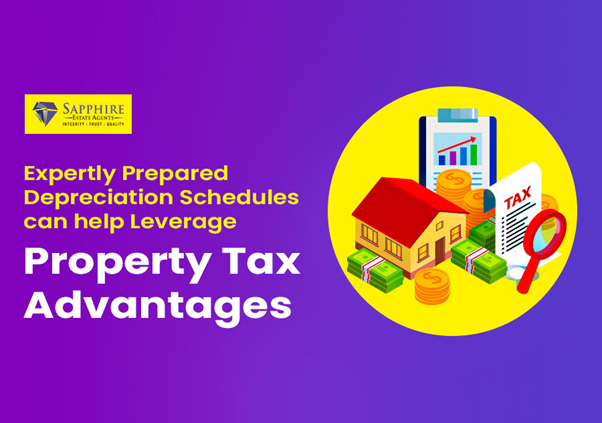
Finally, understanding the concept of depreciation and its potential benefits is like uncovering a hidden treasure within the realm of property ownership. By not taking advantage of this is committing another one of landlord mistakes.
While the physical wear and tear on your property might seem like a drawback, from a tax perspective, it's a valuable asset that can lead to substantial deductions. Think of it as a financial strategy that acknowledges the inevitable decline in the value of your property and its components over time.
Depreciation isn't just a buzzword; it's a legitimate tax deduction recognized by tax authorities. It takes into account the gradual deterioration of your property and its assets due to usage and age. From the structure of the building to its fixtures, fittings, and even the appliances, almost everything in your rental property has a finite lifespan that can be accounted for in terms of depreciation.
Consulting a quantity surveyor to create a depreciation schedule is like unlocking the full potential of this deduction. These experts possess the knowledge and expertise to assess the value and depreciation rate of various elements in your property accurately. The depreciation schedule they create serves as a comprehensive roadmap for claiming the maximum deductions available to you, optimizing your tax position while remaining within the legal framework.
Consider this: claiming depreciation benefits is like offsetting the natural decline in value against your taxable income. This results in reduced tax liability, effectively putting more money back into your pocket. It's a way to align your property's financial performance with your investment goals and aspirations.
The key here is to recognize that depreciation is not just an abstract concept; it's a tangible and valuable financial tool that can significantly impact your investment's profitability. By leveraging it effectively, you're making a strategic move to enhance your rental property's financial performance and minimize your tax burden. You are also eliminating landlord mistakes.
In a nutshell, understanding depreciation benefits and harnessing them through a professionally prepared depreciation schedule is a forward-thinking strategy. It's about optimizing your financial situation by capitalizing on the inherent tax advantages that property ownership offers. By embracing this approach, you're not only maximizing your deductions but also ensuring that your investment's potential is fully realized within the parameters of tax regulations.
Ready to Begin Your Rental Success Story?
Whether you're a seasoned property owner or just dipping your toes into the landlord waters, these insights will set you on the right path. Reach out to Sapphire Estate Agents today, and let's start building a successful rental journey together.
